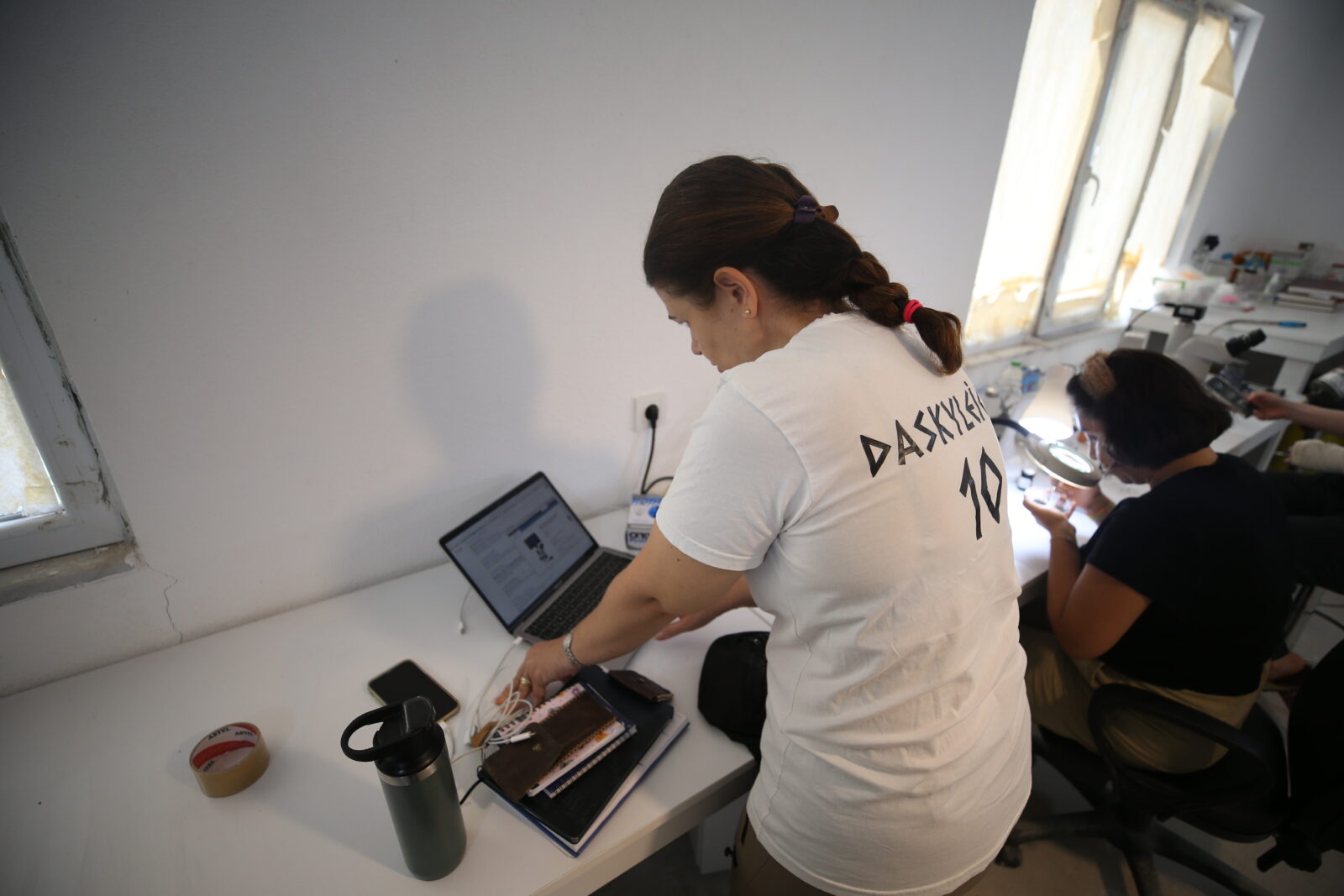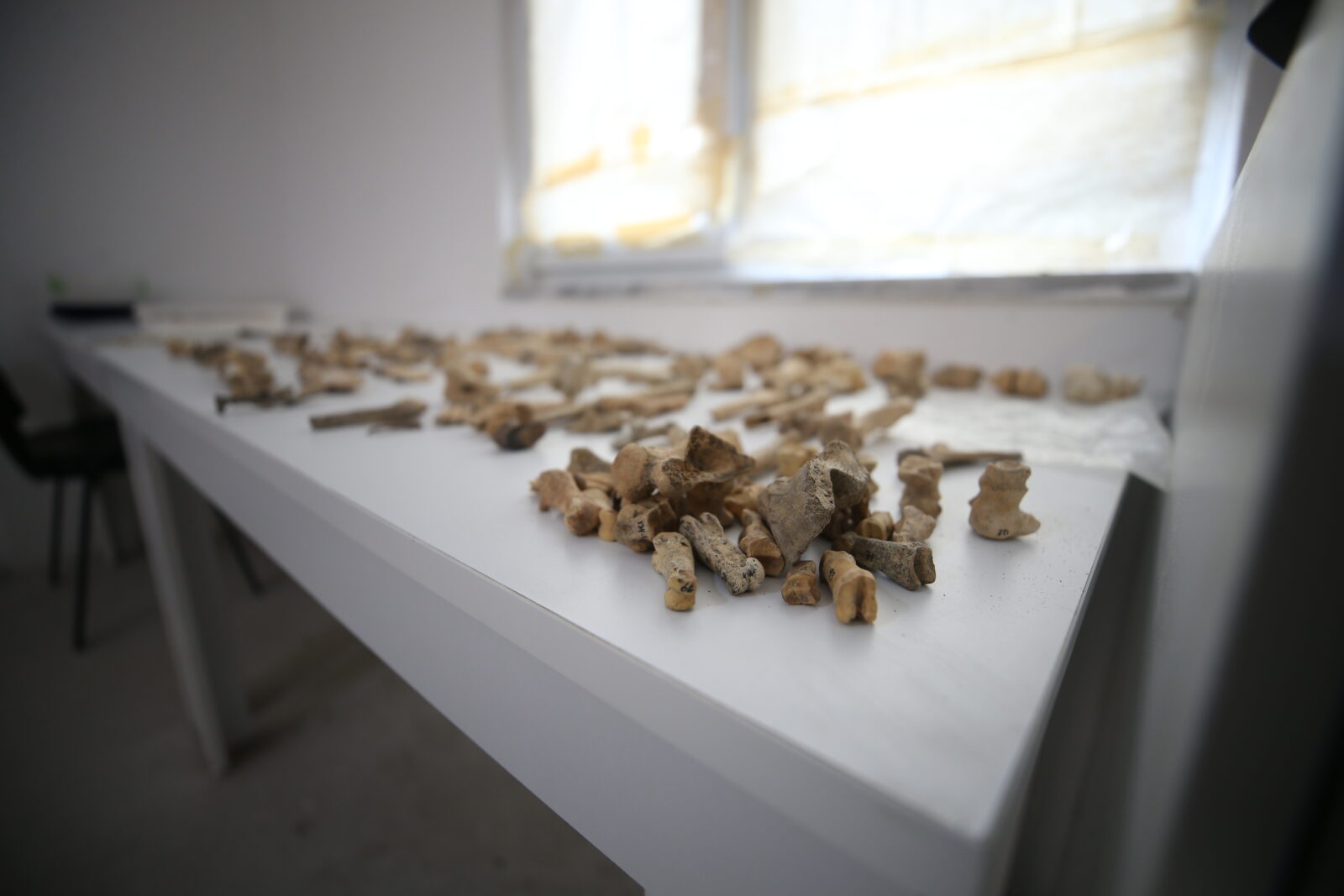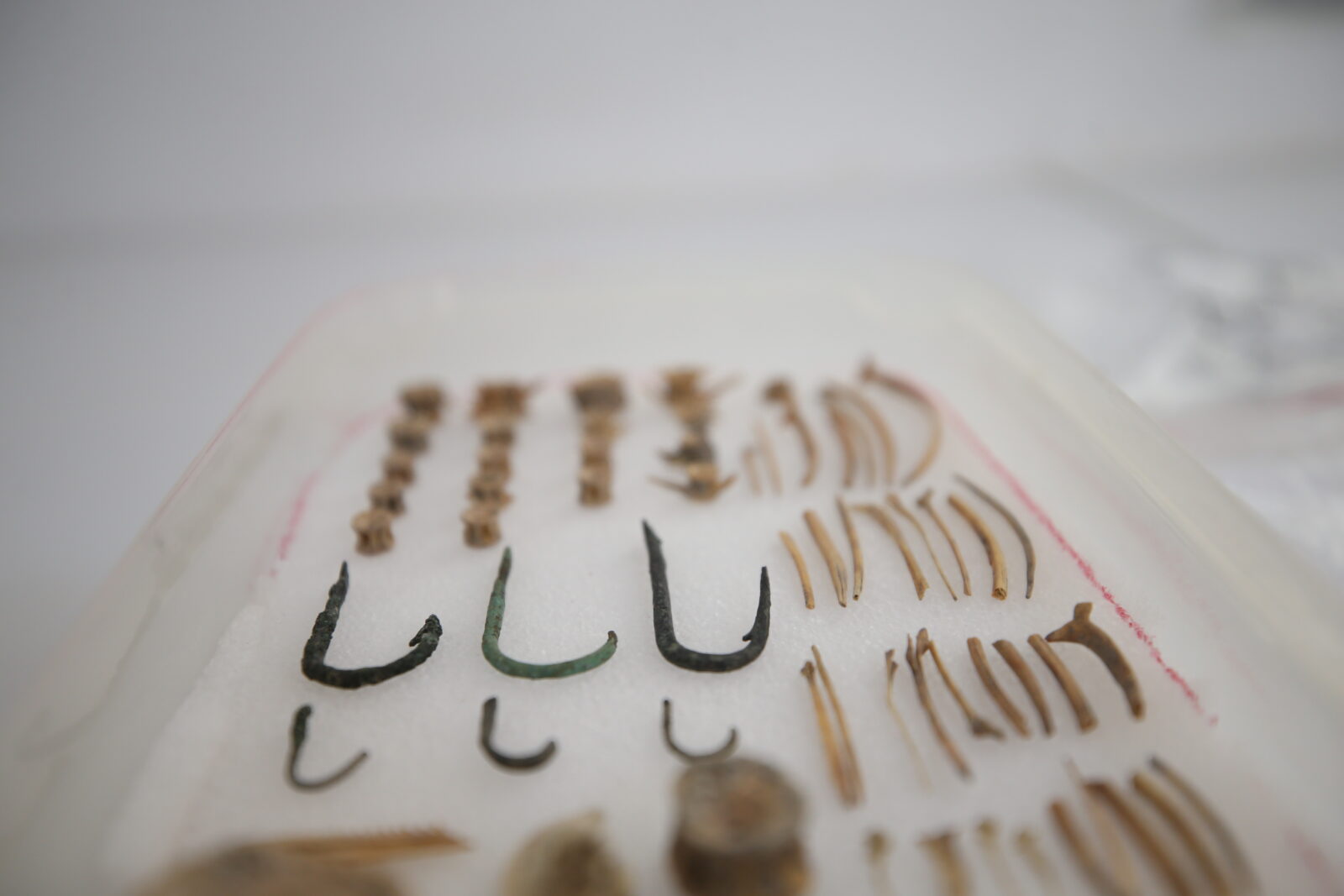Türkiye’s ancient city of Daskyleion reveals 2,500-year-old dietary habits
 Animal bones found in the ancient city of Daskyleion on the shores of Lake Manyas in Bandirma district of Balikesir, Türkiye, September 5, 2024 (AA Photo)
Animal bones found in the ancient city of Daskyleion on the shores of Lake Manyas in Bandirma district of Balikesir, Türkiye, September 5, 2024 (AA Photo)
Ongoing excavations at the ancient city of Daskyleion, located on the shores of Lake Manyas in Bandirma, Balikesir, have provided significant insights into the dietary habits of ancient residents.
According to Fatma Nihal Koseoglu, a research assistant in the Department of Archaeology at Istanbul University, bones from cattle, sheep, goats, pigs, and waterfowl, as well as fish bones and vertebrae, have been discovered.
Additionally, fishing hooks and net weights were found, indicating that both hook and net fishing were practiced 2,500 years ago.

Diverse fauna and mollusk remains
The excavations have uncovered evidence of the consumption of cattle, sheep, goat, and other animals. Additionally, shells of both freshwater and marine mollusks have been found. Koseoglu noted that cut marks on the bones indicate that these animals were used for consumption.
Conversely, no such marks were found on horses, donkeys, or mules, suggesting these animals were likely used for transportation or other work rather than for food.

Culinary practices from 2,500 years ago
The findings also reveal that the people of Daskyleion consumed similar fish species to those enjoyed today.
Moreover, mollusks thought to have been brought from the Sea of Marmara were found to be used both as food and as decorative items. This indicates a sophisticated understanding of food resources and their uses in the ancient period.

Insights from archaeological research of Daskyleion
Ozgun Kasar, a lecturer in the Department of Archaeology at Mugla Sitki Kocman University, highlighted that the multi-cultural nature of Daskyleion has contributed to the diversity of finds. The bone evidence suggests that the city’s inhabitants engaged in both hunting and fishing, reflecting a complex food economy.
These excavations continue to offer valuable perspectives on the daily lives and dietary practices of the people who lived in Daskyleion, enriching our understanding of ancient culinary traditions.



